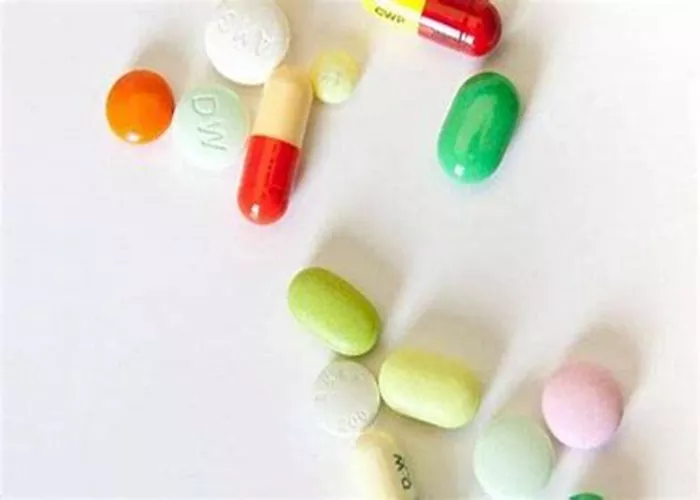In the quest for a slimmer figure, many individuals turn to diet pills as a quick fix. With the proliferation of these products in the market, it’s essential to understand which diet pills are effective, safe, and worth considering. This article aims to demystify the world of diet pills, providing a comprehensive guide to help you make informed decisions.
Understanding Diet Pills: Basics and Categories
Diet pills, often referred to as weight loss supplements, are designed to assist in weight management. They come in various forms, including capsules, tablets, and powders, and can be categorized broadly into several types:
Appetite Suppressants: These pills work by reducing hunger and controlling food intake. Ingredients like hoodia and glucomannan are commonly used.
Fat Burners: These supplements aim to increase metabolism and promote the burning of fat. Common ingredients include caffeine, green tea extract, and capsaicin.
Carbohydrate Blockers: These pills are designed to prevent the absorption of carbohydrates from the diet. White kidney bean extract is a notable example.
Thermogenics: These supplements increase body temperature, leading to increased calorie burning. Ingredients like capsaicin and ginger can have thermogenic effects.
Nutrient Absorption Modifiers: These products may alter the way the body absorbs nutrients, potentially reducing calorie intake from specific foods.
Popular Diet Pills: An In-Depth Look
While numerous diet pills exist, some have gained popularity due to their marketing and claims. Let’s examine a few prominent ones:
Ephedra (Ma Huang)
Claims: Used as a fat burner and metabolism booster.
Reality: Ephedra has been banned in many countries due to its severe side effects, including heart problems, stroke, and even death.
Caffeine-Based Products
Claims: Boosts metabolism and increases energy levels.
Reality: Caffeine can indeed help with weight loss, but excessive consumption can lead to anxiety, insomnia, and other health issues.
Hydroxycut
Claims: Contains a blend of ingredients that support weight loss.
Reality: While some studies suggest it may aid in short-term weight loss, Hydroxycut has been linked to liver damage and other serious side effects.
Orlistat (Xenical, Alli)
Claims: Blocks the absorption of fat in the digestive system.
Reality: Orlistat is a prescription medication that has been shown to be effective for weight loss. However, it can cause gastrointestinal side effects like diarrhea and gas.
Garcinia Cambogia
Claims: Natural supplement that blocks fat production and increases serotonin levels.
Reality: Studies on Garcinia Cambogia have shown inconsistent results, and its effectiveness remains争议.
Misconceptions About Diet Pills
Before diving into which pills might work, it’s crucial to dispel some common misconceptions:
“Quick Fix” Mindset: Many people believe diet pills are a magic bullet for weight loss. However, no pill can replace a healthy diet and regular exercise.
“Natural” Equals “Safe”: Just because a supplement is labeled as natural doesn’t mean it’s safe. Some natural ingredients can have adverse effects, especially when combined with other medications or in high doses.
“FDA-Approved” Means “Effective”: While FDA approval ensures a product meets safety standards, it doesn’t guarantee effectiveness for weight loss.
“No Side Effects” Claims: Any medication or supplement can have side effects. Claims of no side effects should be viewed with skepticism.
What to Look For in a Diet Pill
When evaluating diet pills, consider the following criteria:
Ingredients: Look for ingredients with scientific backing and a history of safe use. Avoid products with unknown or unproven ingredients.
Dosage: Ensure the pill contains a reasonable dosage of active ingredients. Too little may be ineffective, while too much can be dangerous.
Side Effects: Be aware of potential side effects and how they might affect your daily life. Discuss any concerns with a healthcare provider.
Cost: Consider the cost-effectiveness of the supplement. Some expensive products may not offer better results than cheaper alternatives.
Manufacturer’s Reputation: Research the manufacturer to ensure they have a good track record of producing safe and effective products.
Effective Weight Loss Strategies
While diet pills can be a part of a weight loss plan, they should never be the sole strategy. Effective weight loss involves a combination of the following:
Balanced Diet: Consume a variety of nutritious foods, focusing on whole grains, lean proteins, fruits, and vegetables.
Regular Exercise: Engage in at least 150 minutes of moderate-intensity aerobic activity or 75 minutes of vigorous-intensity activity each week, along with muscle-strengthening activities on two or more days a week.
Adequate Sleep: Aim for 7-9 hours of quality sleep per night to support overall health and weight management.
Stress Management: Practice stress-reducing techniques like mindfulness, meditation, or yoga to help manage cortisol levels, which can impact weight.
Hydration: Drink plenty of water to stay hydrated and support metabolism.
Conclusion
Diet pills can be a useful adjunct to a comprehensive weight loss plan, but they should never be relied on solely. It’s crucial to understand the ingredients, potential side effects, and overall effectiveness of any supplement before using it.
When choosing a diet pill, prioritize safety, effectiveness, and cost-effectiveness. Always consult with a healthcare provider before starting any new supplement, especially if you have existing health conditions or are taking medications.
Remember, the key to successful weight loss is a balanced diet, regular exercise, adequate sleep, stress management, and hydration. Diet pills can provide additional support, but they are not a substitute for these foundational practices.
By making informed decisions and adopting a holistic approach to weight loss, you can achieve your goals in a healthy, sustainable way.
Related topic:


